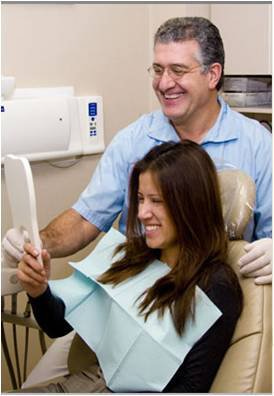By Kelsi Matylewicz/ Benco Dental Social Media Intern
Is tooth sensitivity holding you back from eating the things you enjoy?
Crest’s breakthrough Sensi-Stop™ Strips, deliver tooth sensitivity relief. But you might want know why the sensitivity occurs in the first place.
Dr. Michael Sinkin says one of his most common complaints by patients is: “Why are my teeth sensitive to cold?”
Although cold sensitivity does not mean that the patient has a serious dental problem, the pain brought on by something cold can be shocking and severe.

Dr. Michael Sinkin, a member of the Board of Directors of N.Y.U. College of Dentistry Alumni Association, offers eight reasons why teeth may be sensitive to the cold.
Dr. Sinkin offers eight reasons why teeth may be sensitive to the cold:
- Plaque Build-Up and Gum Inflammation. Periodontal disease can be a cause of cold sensitivity whether in its earliest stages as Gingivitis, or more advanced. Build-up of bacterial plaque is also an irritant, which can lower the threshold at which pain is perceived.
- Gum Recession. When your gums are not firmly attached to a tooth, they can actually pull away from the tooth, exposing the root surface. Unlike the normally exposed part of your tooth, the root does not have enamel protection and therefore is more reactive to temperature, especially cold. Note: Aggressive brushing with a hard-bristled toothbrush or excessive pressure when using an electric toothbrush can cause gum recession.
- Grinding And Clenching. Together, these can be a potentially destructive pattern of behavior in which tremendous forces are placed on your teeth. As your tooth wears down, the sensitive dentin can be exposed, creating temperature sensitivity.
- Cavities. Tooth decay is one of the most common reasons that you may have a tooth that is sensitive to cold (sensitivity is one of the earliest sign of a cavity!)
- Broken Teeth or Lost Fillings. This heightened sensitivity is because part of your tooth’s structure is exposed.
- Acidic Food and Beverage. Highly acidic substances can cause your teeth’s structure to break down. Acidic drinks are can dissolve tooth structure, the same way acids from bacterial plaque cause cavities.
- Recent Dental Treatment. The placement of large restorations, fillings or crowns can also provoke sensitivity.
- Acute Pulpitis. Acute pulpitis is an inflammation of the dental nerve. The symptoms of this condition are more severe than just slight cold sensitivity and the pain lingers even after the stimulus is removed.
Cold sensitivity many worsen over time and if anyone experiences this, they should consult their dentist.
To read more from Dr. Sinkin’s causes and solutions read: https://www.michaelsinkindds.com/blog/teeth-sensitive-to-cold-heres-why/
While Dr. Sinkin tries to ensure that ice cream and chilly confections always offer a pleasant eating experience, Dr. Marielaina Perrone in Henderson, Nevada, shares one cold

Marielaina Perrone DDS, who earned her Dental degree at the Stony Brook University School of Dental Medicine, explains why chewing ice cubes harms your dental health.
substances you should avoid chewing: ice.
In her blog: https://drperrone.com/blog/, Dr. Perrone explains why chewing ice cubes harms your dental health.
According to Dr. Perrone, chewing ice causes:
1. Increased Pressure on Your Teeth. Our teeth are made up of an outer layer called enamel. This layer is extremely hard and not very flexible. Chewing on an ice cube can wear down the enamel over time or chip and fracture your teeth.
2. Constant Hot and Cold Change. These sudden and extreme changes in temperature can cause micro cracks in your enamel. Also, your tooth’s enamel expands at a different rate than fillings. If you have a composite (white) filling, it will expand and contract much faster than the tooth when exposed to hot and cold temperatures. This could possibly lead to a breakdown of the seal between the tooth and the dental restoration and may shorten the life of the restoration possibly leading to tooth decay, root canal therapy, or even tooth loss.
3. Breakage of Orthodontic Braces. Chewing ice cubes might break off an orthodontic bracket or move a wire. This can set back your orthodontic treatment until the issue is resolved by your orthodontist. It can also lead to oral trauma.
4. Oral Tissue Trauma. Ice chunks are hard and some can be pretty sharp.

